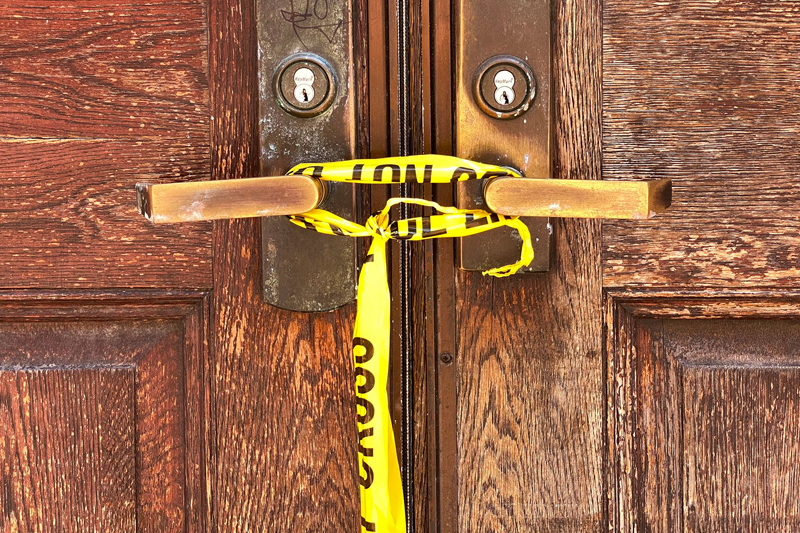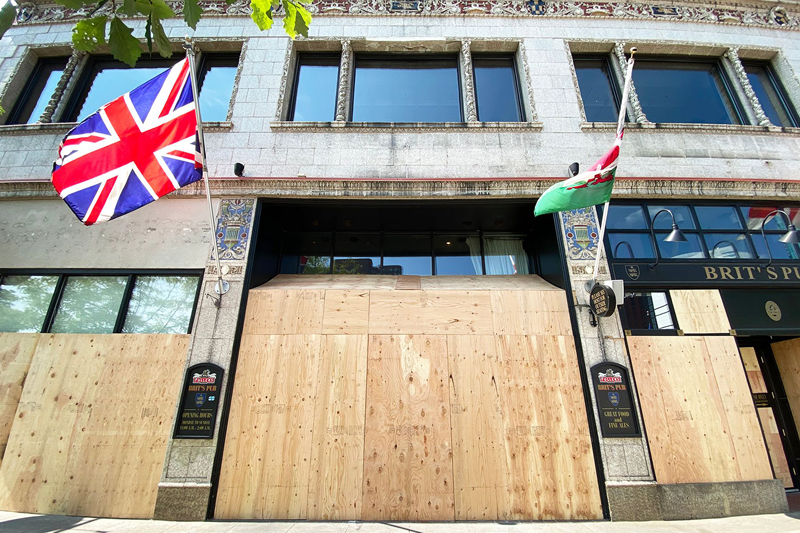
PHOTOS BY BRENDA JOHNSON
On Thursday morning, I asked one of the Heavy Table’s photographers, Brenda Johnson, to go to downtown Minneapolis and document some of the damage from the night before. The fire, theft, and destruction of property had occurred in the aftermath of a death by suicide that had been quickly – and not unreasonably – perceived by many in the community as the latest killing of a Black person by the police. The police response, which included the rapid release of a gruesome suicide video, may not have been the exact balm that the city was searching for, either.
Most of the restaurants affected are places that I know. Sushi Train was my kids’ favorite destination for about a year after its opening. Brit’s Pub is a community icon. I gave a breakfast talk to a group of culinary industry professionals at the Local. I’ve only been to the Lotus once, but it’s a mainstay for people living in the area.
When I got the images back from Brenda, I realized that I would need to backstop them with context. Run photos of damaged restaurants and troops on the streets without weaving them into a bigger story, and you’re not reporting news, you’re just feeding existing narratives.
A few sentences should do it, I thought. And then I thought about those sentences. Okay, maybe a few paragraphs. And then I thought about those paragraphs. Okay, we’re looking at something more like an op-ed. So it goes.
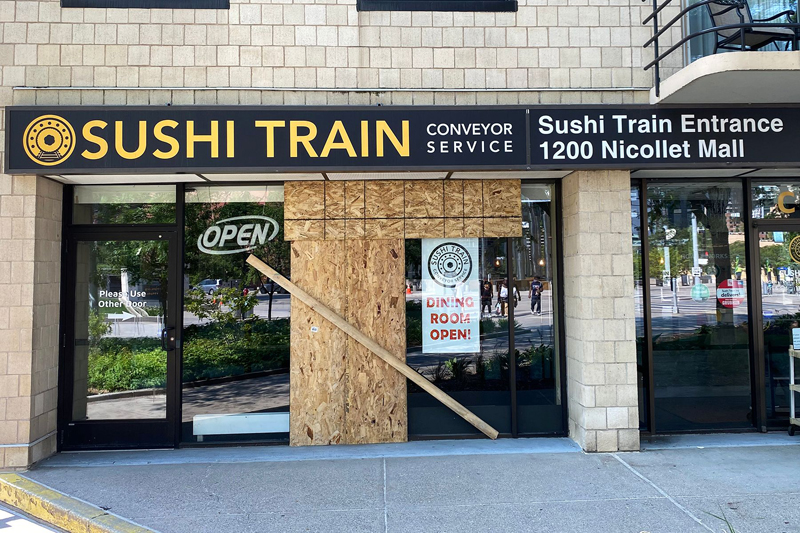 A CASE AGAINST LOOTING
A CASE AGAINST LOOTING
My family lives about five blocks from the 3rd Precinct in Minneapolis, and we stayed in town throughout the protests and riots that followed the killing of George Floyd on May 25. The post office that I trekked to at least a dozen times to mail out copies of the Heavy Table’s Secret Atlas of North Coast Food was burned down. Our neighborhood Indian restaurant, Gandhi Mahal, was a high profile casualty. Midori’s Floating World Cafe was trashed.
My wife and son helped board up the corner store and autoshop across the street, and I stayed up until dawn four or five nights in a row, looking out for my neighbors, following the news, and the rumors, and the wild speculation, as pharmacies and gas stations and libraries and independent restaurants were trashed and burned to the ground. I will never forget the fear, anger, and confusion of those days and those nights, and I can only imagine that people whose very livelihoods were burning to the ground felt our feelings magnified a hundredfold.
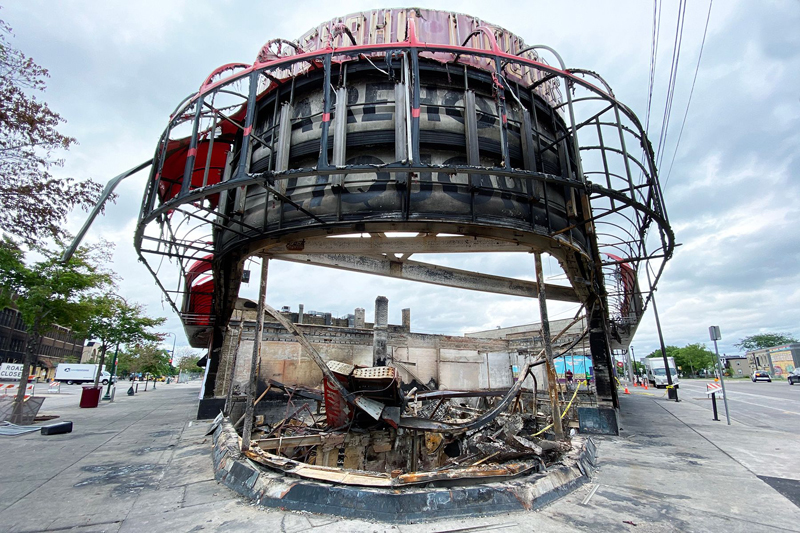
BRENDA JOHNSON / FILE PHOTO
Independent of whether looting and/or burning down a restaurant is against the law – it is, incidentally – by destroying a neighborhood’s businesses you’re creating a ratchet effect for the independent restaurateur who is barely making a living, who is probably underinsured and possibly uninsured completely, gets wiped out, while the large chain restaurants rebuild with ease or set out for greener pastures.
Walk East Lake Street today and see how fast things are bouncing back for the mostly immigrant working class people who run the taquerias and Somali restaurants that line the street. Not terribly quickly. The community is still wounded.
The destruction of commercial property in an urban neighborhood is unlikely to hurt major landlords, or corporate boards, or the kind of exurban voters who view “law and order” as more guns and complete freedom of operation for the police no matter how many Black people get hurt. It’s the sort of thing that hurts small businesspeople and the the people who rely on their services. And it’s terrifying and it’s dangerous.
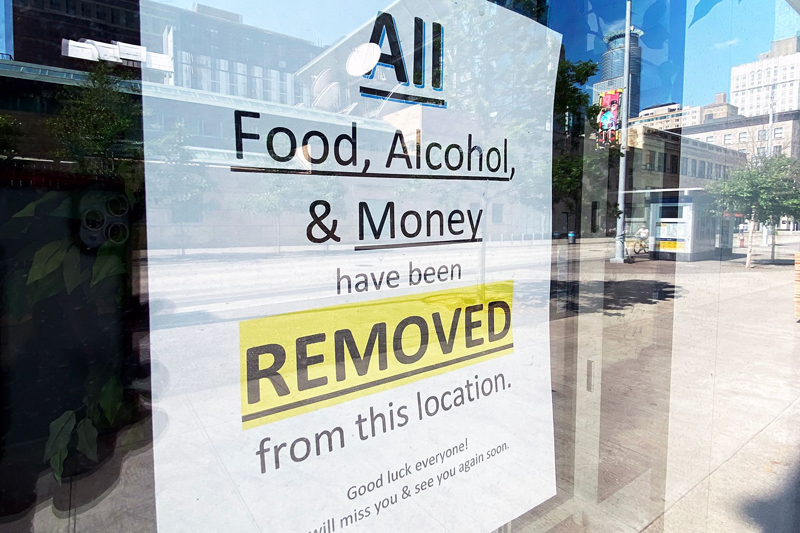 IN DEFENSE OF LOOTING
IN DEFENSE OF LOOTING
But: “terrifying and dangerous” describes police departments that kill Black citizens with casual impunity. It describes riot police firing tear gas canisters at the faces of unarmed and often peaceful protesters, and shadowy quasi-police kidnapping citizens into unmarked vans. It describes a society where health care is expensive to the point of being financially devastating, and thousands of people are expected to die rather than obtain care (insulin, cancer treatments, organ transplants) that is rationed for citizens with stable jobs and deep pockets. Food service workers rarely enjoy that kind of security.
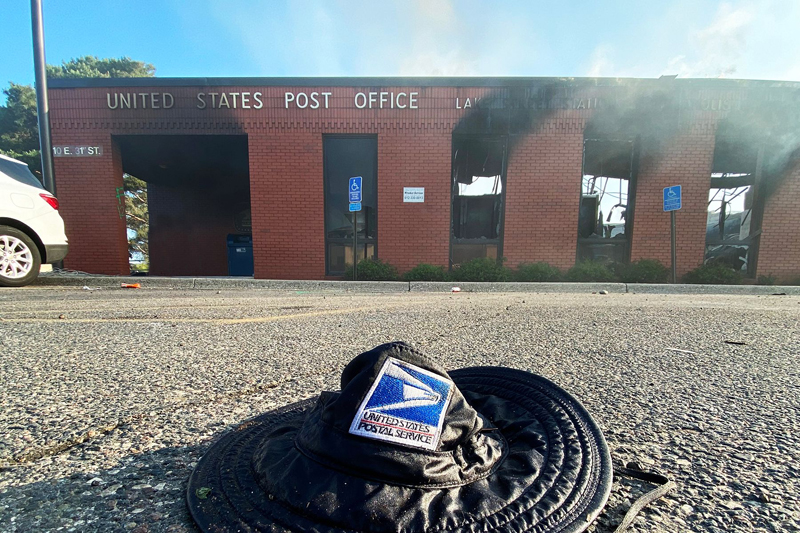
BRENDA JOHNSON / FILE PHOTO
“Terrifying and dangerous” describes a society where government often has life-and-death power over its citizens, but the central mechanism that is intended to regulate that government – elections – has been compromised, perhaps to the point of no return. If that seems extremist, look at the recent systematic sabotage of the U.S. Post Office, one of the few government institutions to be viewed in a highly positive way by citizens on both sides of the political aisle.
And “terrifying and dangerous” describes not just the horrible institution of slavery, but all the ways that its evils – forced labor, the school-to-prison pipeline, jaw-dropping racial gaps for everything from school achievement to house appraisals to health outcomes – live on to this very day. (If you want to dig deeply into some of this stuff, here are three books to read: The Cooking Gene by Michael Twitty, Worse Than Slavery by David Oshinsky, and The Toughest Beat by Joshua Page.)
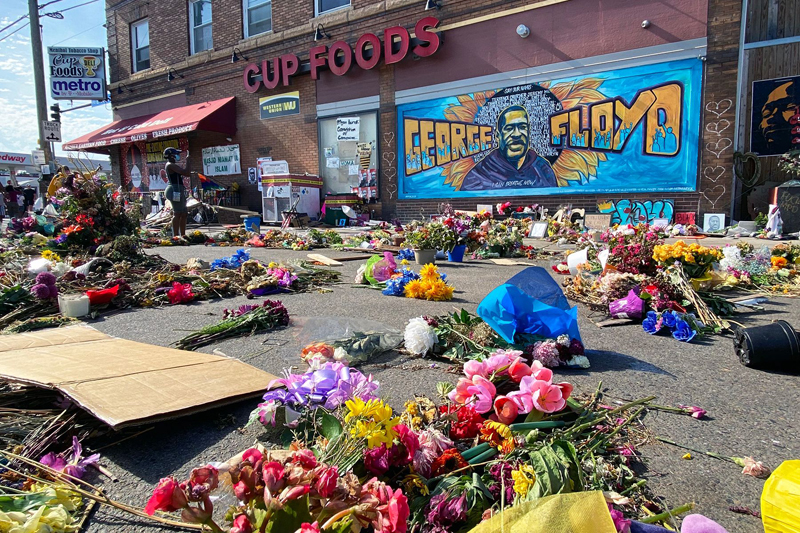
BRENDA JOHNSON / FILE PHOTO
The killing of George Floyd was a watershed moment that set off protests around the world. And now, three months later, what has changed? What reforms have been enacted? How has the attitude of the police toward Minneapolis residents shifted or improved? A progressive city council isn’t enough to make a difference, and now that same deep anger is pushing people into the streets. The idea that rage about deep-seated racial iniquities and violence will just dissipate on its own makes as much sense as treating a pandemic by issuing orders to open up schools and businesses while the virus roams free. And this sets aside entirely the idea that the large-scale looting doesn’t ever happen on the streets, it happens within boardrooms located in the richest zipcodes in the country and it happens to the most vulnerable citizens in the country.
If gerrymandering, and government-by-veto, and outright election theft stops the majority of people from being able to elect representatives – then voting through uprising is one of the few effective channels left.
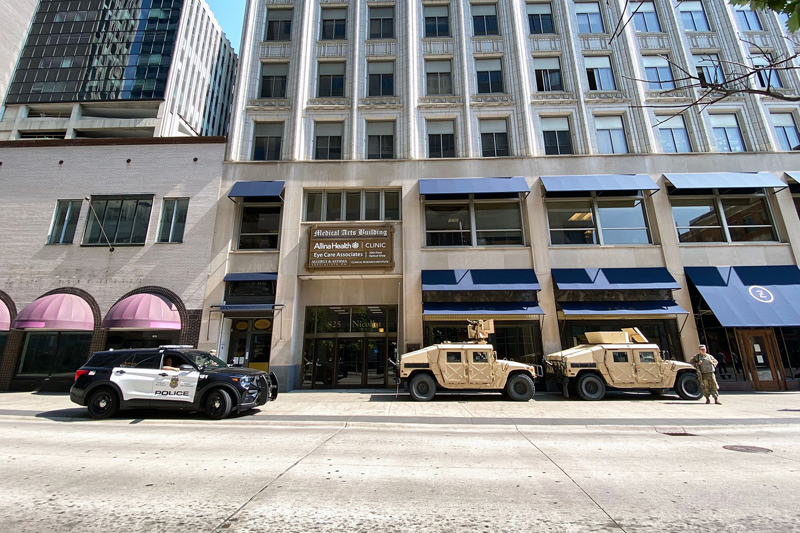 THE ENTANGLEMENT OF FOOD AND JUSTICE
THE ENTANGLEMENT OF FOOD AND JUSTICE
What, you might ask, does any of this have to do with a website that covers the food and drink of the Upper Midwest?
It has everything to do with what we do. Food and drink is made by people, many of whom have to work under life-threatening conditions to keep their jobs as cooks and servers. It is made for people, many of whom can’t afford it anymore because they’ve lost their jobs, or can’t enjoy it anymore because civil unrest has imposed a curfew or wrecked their local restaurant.
And it has everything to do with what we do because we can’t ignore restaurants being destroyed by citizens of this state – whether citizens outraged by injustice, or citizens hoping to start a race war. And we can’t talk about that destruction without acknowledging that it’s deeply complex, and it’s a symptom of a society that is in deep distress.
So this isn’t an essay asking people not to loot restaurants. And it isn’t an essay proposing that people go out and do it. It’s an essay saying that until we safeguard our elections, and fix the systems that feed us, educate us, and give us health care, we’re going to keep waking up to mornings like yesterday, and tallying the losses.

